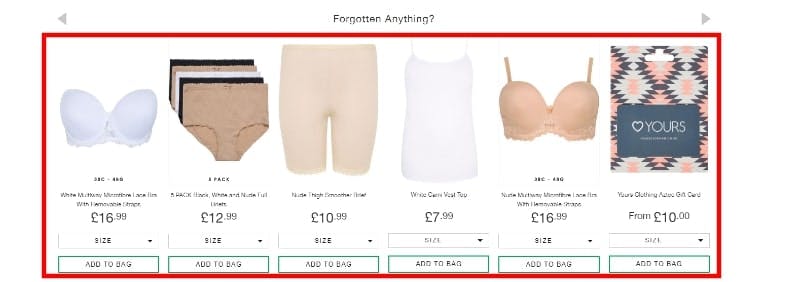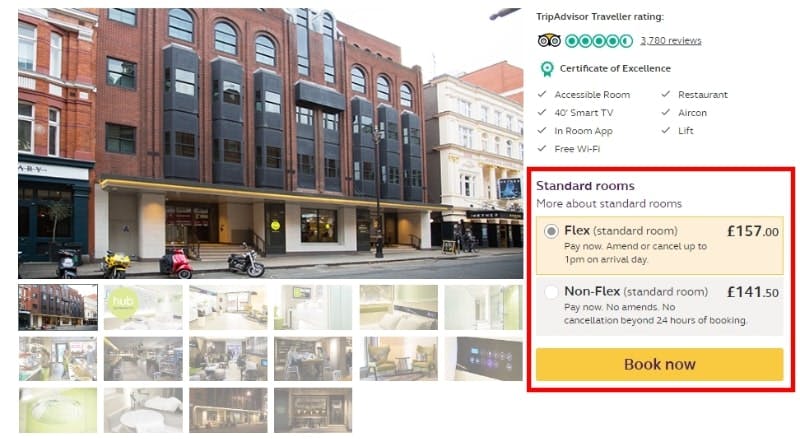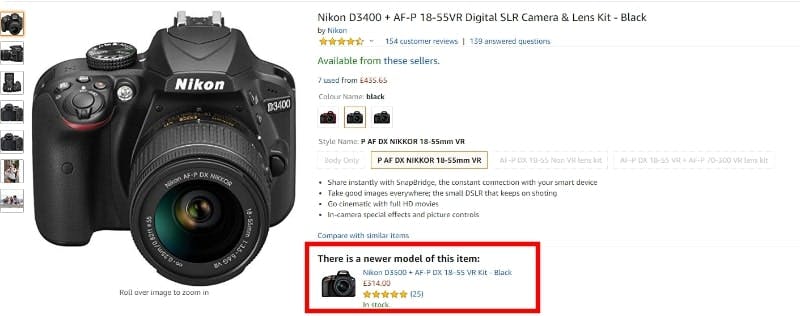The Art of the eCommerce Upsell


One of the oldest tricks in the book for any salesman or retailer is the art of upselling. In the simple sense, this is known as persuading a customer to purchase a more expensive item, or an add-on / additional item, without any previous intent to do so.
When done right, upselling can bring many benefits to your business as well as bring in more revenue, increase customer satisfaction and enables you to build deeper customer relationships. At the end of the day, if you are saving your customer money, subconsciously they will have a positive image of the business in their mind which may bring them back to your online store in the future.
Upselling is a strategy that all online businesses should consider if they wish to increase average order value, items per transaction or brand advocacy. So what are the best practices when trying to upsell?
1. Be relevant
When deciding to upsell to your customers, relevance is key. If your customer was purchasing a pair of trainers, a sensible upsell would be a pair of socks to wear with them, rather than an item such as a watch strap.
Though this item may be nice, the likelihood that they are going to impulsively buy one is slim as their train of thought wasn’t going along those lines.
2. Only upsell your most reviewed or most sold products
Attempting to push products which are not selling well already doesn’t work. Instead try to upsell product upgrades which are already doing well and show the customer where your demand is, because it is more than likely they are part of that same demand.
3. Minimise the options available
Too many options is overkill and will ensure your potential customer begins contemplating their purchase again, pushing them further away from a transaction. Offer a maximum of 3 product alternatives.
4. Bundle products together
Though creating bundles of items can also be classed as cross-selling, by packaging items together, you can create a sense of better value for money.
Bundles of multi-pack items or groups of related products can be often up-sold from the single item because of the long term saving to a consumer. For example, why wait until your saw blade goes blunt to buy a new one, when get a spare now for 50% cheaper.
This kind of offer tends to only come round at the time of purchase and will be seen as a tempting offer if it will benefit the customer in the long run.
5. Offer extras if total spend is above particular thresholds
This technique is usually placed on a basket/cart page, where delivery of your purchase will become free if your transaction total is above a set threshold, so products of a low cost will be placed in attempt of allowing this “saving”. This is advantageous to a retailer as more profit can be made from a transaction with an extra item and to soak up shipping costs themselves.
6. Create a sense of urgency
Like in most marketing activities, creating a sense of urgency within your campaign can help increase its effectiveness.
Ways that you could do this when upselling could include you using phrases such as ‘limited time only’ or ‘limited quantities’ or even visually showing this by incorporating a countdown timer.
7. Offer free delivery
According to a study, 24% of people think that paying for shipping costs are the worst part of shopping online. By offering free delivery if they spend over a certain amount can encourage the customer’s incentive to be upsold other items with their purchase.
8. Upsell after the purchase
Once the purchase has been completed, your window for upselling doesn’t stop there. You can re-engage with your customer by emailing them a confirmation of their order and suggesting some recommended items, or even by giving them the ability to edit their purchase for a certain amount of time if they want to add something else.
9. Always offer upselling options
The more opportunities you take to show your customers potential upsells, the likelihood of them accepting increases dramatically. Some popular locations for including upselling options include:
-
On Product Pages
By including potential upselling items on your product pages, means that you can capture your customer’s interest as they are browsing. This means that you can include extremely relevant items to what they are viewing.
-
Within Your Cart
By using intelligent algorithms and artificial intelligence, you can use your cart to suggest some highly relevant items which many people have previously bought together. Using date like this can give your customer the social proof that they need to go ahead and purchase more items. For example, Amazon use this perfectly when showing items that were ‘frequently bought together’.
10. …But don’t be overly pushy
In an attempt to upsell to your customers, it’s important that you understand the boundaries. We recommend that you don’t:
-
Attempt to upsell and cross-sell before a customer has even chosen a product to purchase – this is off putting.
-
Bombard customers with too many options – this will confuse your customer.
-
Sneaky tactics like hiding pre-selected add-ons in the hope customers do not notice it – just, don’t.
Effective Uses of Upselling Examples
Check out these great examples of upselling in action from a few popular names.
Yours Clothing

Upselling only works when you are sensible with what you are trying to upsell with. Would you buy a new PS4 Pro for £600+ if you only had £45 worth of product in your basket? Probably not. Yours Clothing have nailed this theory, ensuring that products being pushed are sensible, all priced under the value of the product that has been added to the customer’s basket and are extremely popular items that almost any woman needs.
Premier Inn

A simple upsell from Premier Inn displayed to customers who select the “saver” option for room booking – which attempts to persuade the customer to purchase the “flexible” option. The copy which Premier Inn use is cleverly written, front loading the sentence with reasons for upgrading and calculating the difference between the customer’s current selection and the upgrade.
Amazon

Being the masters of eCommerce, Amazon use an array of upselling and cross-selling techniques including the below recent addition – upselling the consumer to a newer model of the product. Buying the latest model or version of a product is a great upsell especially for brand advocates, just take a look at those Apple fans! In this example, Amazon are upselling a more expensive similar product, using star ratings and availability information as a CRO technique.
In summary, any upsell and cross-sell technique should be used as marketing strategies to help customers make better decisions, faster – all with one goal: to make your customers happier.
If you’re looking to upsell with smart technology, perhaps the Remarkable Commerce Manager is for you. With a powerful upselling and cross-selling feature built for exactly what you want it to do. Give eCommerce experts a call and Remarkable Commerce Manager will see how to help you!
Want more like this?
Want more like this?
Insight delivered to your inbox
Keep up to date with our free email. Hand picked whitepapers and posts from our blog, as well as exclusive videos and webinar invitations keep our Users one step ahead.
By clicking 'SIGN UP', you agree to our Terms of Use and Privacy Policy


By clicking 'SIGN UP', you agree to our Terms of Use and Privacy Policy
Other content you may be interested in
Categories
Categories
Categories
Categories

Want more like this?


Want more like this?
Insight delivered to your inbox
Keep up to date with our free email. Hand picked whitepapers and posts from our blog, as well as exclusive videos and webinar invitations keep our Users one step ahead.
By clicking 'SIGN UP', you agree to our Terms of Use and Privacy Policy









